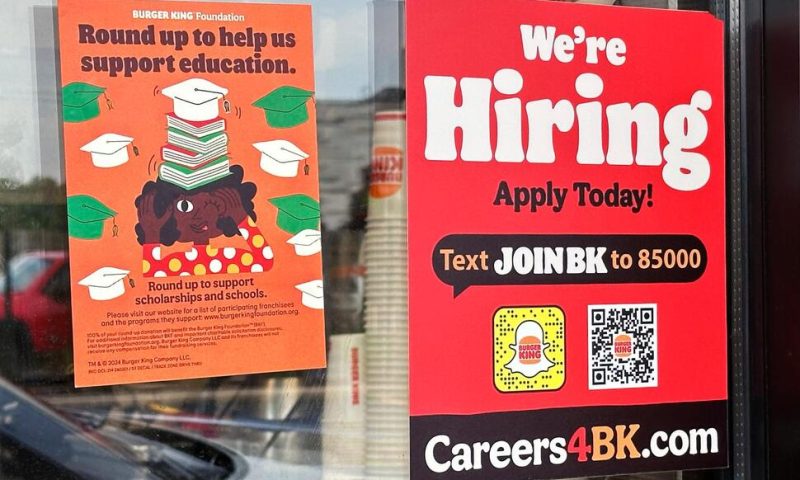The number of Americans applying for unemployment benefits slipped last week
WASHINGTON — The number of Americans applying for unemployment benefits slipped last week as the U.S. labor market remained resilient.
The Labor Department reported Thursday that jobless claims fell by 5,000 to 238,000 from a 10-month high of 243,000 the week before. The four-week average of claims, which evens out weekly ups and downs, rose by 5,500 to 232,750, highest since September.
Weekly unemployment claims — a proxy for layoffs — remain at low levels by historical standards, a sign that most Americans enjoy unusual job security. Still, after mostly staying below 220,000 this year, weekly claims have moved up recently.
“Layoffs are still low overall suggesting businesses remain reluctant to reduce headcount in large numbers,’’ said Rubeela Farooqi, chief U.S. economist at High Frequency Economics. “However, there has been a gradual increase in recent weeks that merits watching for signals about a more material weaking in demand for workers going forward.’’
Nearly 1.83 million people were collecting unemployment benefits the week of June 8, up by 15,000 the week before and the seventh straight weekly uptick.
The U.S. economy and job market have proven remarkably resilient in the face of high interest rates. Employers are adding a strong average of 248,000 jobs a month this year. Unemployment is still low at 4%.
But the economy has lately showed signs of slowing, perhaps offering evidence that higher borrowing costs are finally taking a toll. For instance, the Commerce Department reported Tuesday that retail sales barely grew last month.
The Federal Reserve raised its benchmark interest rate 11 times in 2022 and 2023, eventually bringing it to a 23-year high to combat a resurgence in inflation.
Inflation has come down from a mid-2022 peak 9.1% but remains stubbornly above the Fed’s 2% target. Fed policymakers announced last week that they have scaled back their intention to cut the rate three times this year. Now they are anticipating only one rate cut.

